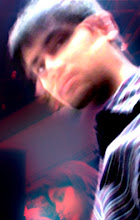I HAVE HEAVILY MODIFIED THIS POST (AS OF DECEMBER 8, 2005, 2am)... IF YOU READ THE POST BEFORE DECEMBER 8, PLEASE READ IT AGAIN.
A multitude of periods of enlightenment have passed throughout the course of time as humanity watches and learns. Various cultures in both the New World and the Old World have undergone times when the ignorance of the past is replaced by an age of learning. Most recently, the end of the Dark Ages of Europe in the 1500's eventually gave rise to the commencement of a time when a lack of complete religious submission was no longer considered unacceptable. When Renaissance thinkers rediscovered the teachings of Socrates and his successors, a new era of religious thought was invoked.
The spirit of the Reformation is dead. Modern religious thinking seems to simply involve affirmation of one's current thoughts rather than the formulation of reasonable judgements. Clearly incorrect opinions are often accepted and are considered "self-explanatory" by those who cannot explain them. How was Jesus's death related to my sins; why is an eternity in heaven considered a punishment for him? What exactly is the Trinity? Why do you think this conversation is "going nowhere" just because your arguments are nonsensical?
Today, it seems that independent religious thinking is dismissed as easily as it was during the Dark Ages. One cannot be Muslim without following the Hadith, one cannot be Christian without believing in the Trinity. Many Muslims ignore the fact that only the Quran is still present in its pure form and that this idea forms the very basis of our beliefs; many Christians ignore the fact that Jesus never claimed to be a member of a Trinity and that this concept was a one of Paul's many fabrications (which I can explain later if you want). Many Muslims deny the beliefs of certain other Muslims simply because they drink alcohol or have promiscuous sex; they seem to ignore the fact that a Muslim becomes a Muslim by simply asserting the oneness of God and by accepting His word as true. Many Muslims deny the beliefs of a peer who lives his life simply based on the teachings of the Quran rather than taking verbatim the traditions that have been produced over the course of history.
They may deny the purity of somebody's faith when they want to, but they are not the ones who are capable of judging. I can say that Mohammad Yousuf is not a true Muslim and that he only converted out of pressure from the rest of the Pakistani cricket team, but only Yousuf and God know his true intentions. I can say that Osama bin Laden misinterprets the Quran and induces many people to follow him blindly, but the final judgement still resides with God. Nobody can deny the intentions behind anybody else's actions.
Osama's followers, however, similarly to Hitler's followers, epitomize the death of the Reformation. They are incapable of forming their own thoughts and simply follow a ridiculous opinion solely because it is advocated by an eloquent speaker with political power. Many people still fail to understand how so many people can agree with such extremist philosophies; after reading Mein Kampf, however, I understand how. Osama probably uses the same tactics as Hitler did; he simply has to convince the populace that he is eradicating an evil population.
Modern education promotes the absorbance of facts. Only the more advanced courses will allow independent thinking and in today's world, such a restriction of independence is nothing short of evil. Such restrictions will inevitably lead to another Hitler or another Osama or another Stalin or another Bush (God forbid). Who gives us our facts? Are they reliable? Were they invented by an anti-semitic lunatic, were they invented by an extremist Westernization-phobic militant, were they invented by a sadistic authoritarian tyrant, or were they invented by a war-mongering Texan oil tycoon? A plethora of great thinkers has established the great society that we live in today... Thomas Jefferson would roll over in his grave if he were to see the requirements to earn a Ph. D. at a modern university.
Tuesday, December 06, 2005
Subscribe to:
Post Comments (Atom)

1 comment:
Good deal. Though I am not well versed in the Reformation and the Renaissance, I get the hang of it.
Post a Comment